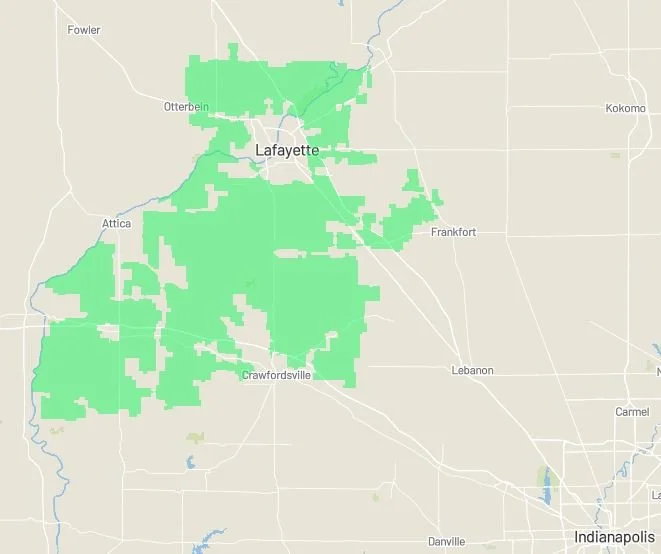A Guide to Going Solar with Tipmont REMC
Tipmont REMC
Find out how much it costs for Tipmont customers to install solar panels
Understanding Tipmont REMC
Tipmont REMC
Utility Type: Co-op/REMC - a rural electric membership corporation where customers are also member-owners. An REMC does not make their own energy, but purchases it from a power provider.
Offices: Linden, IN and West Lafayette, IN
Power Provider: Wabash Valley Power Alliance
Website: www.Tipmont.com
Contact for Solar Related Questions: 800-726-3953
Key takeaways for switching to solar with Tipmont REMC
Solar Policies: As an REMC, Tipmont’s solar policies are governed by a board of directors representing the membership districts that make up the service territory.
Commonly Used Solar Programs:
At Home Solar
Each month the member will receive credits for generated from their system and delivered to the co-op.
Credited Rate: The customer will receive credits at the same rate as they pay, or full net metering. Current rate is about $.12/kWh.
Go-Off Grid - Disconnect from Tipmont REMC or Connect or install a system separate from the grid. Click here.
Get a free and unbiased estimate from an Indiana solar designer on how these programs may benefit you.
Go Solar with Tipmont REMC >>
Tipmont REMC Service Territory
“System owners receive a full credit from Tipmont REMC for any excess energy that is sent back to the grid. This allows for a much faster payback.
Tipmont management has reported that this may change in the near future!
After they implement a new metering system, they plan to revisit net metering.”
Want more tips ?
Download the Indiana Solar Guide
Top 10 tips on how to shop for solar in Indiana
Solar pitfalls and how to avoid them
Trusted advice from solar industry professionals
<< Download Now
See other Tipmont REMC customers that switched to solar.
Are solar panels worth it for Tipmont REMC customers?
Yes! For Tipmont REMC customers in Indiana, adding solar panels can be a worthwhile consideration. Their solar program is a good option as it does provide the customer with a credit for excess energy generated.
Additionally, the availability of the federal tax credit can offset the initial installation costs, making solar more accessible. However, individual circumstances, such as roof orientation, local regulations, and financial situation, should be evaluated to determine the overall value of a solar panel installation.








